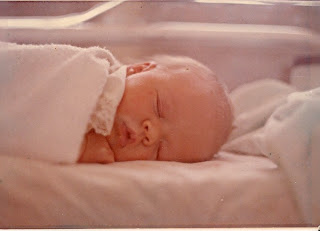This week's "In Other Words" is being hosted by Deborah at Chocolate & Coffee. Head over there after reading my entry to find links to all the other participants' entries.
This week's quote:

Tozer opened a can of worms with that one!
First of all, God didn't say a whale swallowed Jonah. That was a translator's take on it. The original Hebrew said, "a great fish." So the measurement of whale gullets is irrelevant. But the questions raised here are important ones anyway, especially considering the intellectual snobbery of atheism today.
"Christians are afraid of science! If you become a Christian, you have to check your brains at the door. Only Atheism is intellectually satisfying." That sneering sentiment is taught from college lecterns and speakers' podiums every day. But it is based on a number of faulty premises:
Faulty premise #1. Science is foolproof and can be trusted. Scientists are often wonderfully blind to the fact that theories which once seemed rock solid are constantly being revised or discarded altogether. Theories truly are a dime a dozen, and since evolutionary science is based almost entirely on untestable, unprovable ideas, it lacks a great deal of validity. Thomas Kuhn (who did not write from a Christian point of view) wrote a wonderful book called "The Structure of Scientific Revolutions." Amazon.com quotes scientist Steven Weinberg as saying that this book "has had a wider influence than any other book on the history of science." It provides wonderful insights into the way science really works, showing how new theories don't necessarily represent an advancement in understanding of the truth. Though it is far from "light reading," I highly recommend it.
Faulty premise #2. Christianity doesn't have any good science behind it. Christianity has plenty of good science behind it. But that science, along with those who teach it, is censored, censured, and persecuted into silence. Professors who espouse non-atheistic views simply aren't allowed to continue working. I haven't yet seen the movie, "Expelled," but I have heard that it does a good job of documenting the outrageous censorship and persecution of "outside the box" thinkers in academia today. I also recommend The Truth Project. I have seen only the first two installments, but am enjoying it tremendously. It is one of many proofs that there are great minds in Christendom. But I won't go to a lot of trouble to dig up more examples or arguments for this point. Why? Because of...
-The third and biggest false premise: that atheistic scientific inquiry is really about finding truth.
It's not.
Now there's a statement that's sure to raise hackles, but I firmly believe it. We humans search for and embrace anything that supports what we love. And at the deepest levels, we search for and embrace that which supports either our love for God, or our hatred of Him. There is nothing deeper motivating any of us. Jesus said, "This is the condemnation, that light has come into the world, and men loved darkness rather than light, because their deeds were evil" (John 3:19). Why do I believe that this is the deepest motivation behind atheistic science? Because the fact is, if an ardent atheist can't counter an argument by a Christian, he will not change his mind. He will search desperately for a different argument. And when he finds one, how will he feel? Relieved! Why? Because he once again has a rationalization for the godlessness that he loves. It's a heart thing, not a head thing. His love for godlessness will not change (barring a miraculous work of the Spirit), so he would rather go without "the best argument" than accept one which supports the God whose existence he despises.
An agnostic once told me, "I would be disappointed if I found out that all of this was created. It would ruin everything for me." Why? She went on to explain that, in her view, mankind was the center of everything, and to her, that was beautiful. It's all about what she loves (mankind, and herself in particular). But to the lover of God, nothing is more beautiful than seeing His glorious handiwork.
And think about this. If an atheist firmly believed that a whale had swallowed a man in the distant past, he would create a theory about ancient whales (and the absence of fossil evidence wouldn't faze him). He would resort to an endless list of "could haves" and "would haves" to make it all look pretty, and before long his theories would be presented in school textbooks as likely facts. Don't believe me? Just listen to any nature show on The Discovery Channel. Count all of the "could haves," "would haves," and unsubstantiated, untestable claims. Compare that to the number of provable claims. You might be surprised.
And of course the same works in reverse. Just as the godless scientist loves godlessness, so the godly scientist loves God. And each type of scientist brings his or her own bias to the table every time. There's no such thing as unbiased inquiry into the untestable.
Still not convinced? Think about this fact. Atheistic evolutionists really couldn't care less which evolutionary models you embrace, regardless of how the various models may contradict each other. They only care that you DON'T embrace Creationism. By all means, disagree in any way BUT THAT! It's bias, pure and simple.
If anyone truly changes camps, it will be because of a change of heart, not just mind. That's why trying to convince the mind of an atheist is often not the best route. What he needs is a heart change, and only the Spirit can do that. Talk to the atheist about sin, about righteousness, and about judgment. Jesus said that those are things which the Holy Spirit specializes in impressing on hearts (John 16:8). You never know. God could use you as a tool when He does a miracle in someone's heart.
Tozer was onto something!


![Reblog this post [with Zemanta]](http://img.zemanta.com/reblog_a.png?x-id=e017c2ad-e3f6-41b3-ba8d-7466f94d9430)







![Reblog this post [with Zemanta]](http://img.zemanta.com/reblog_a.png?x-id=9c3ca160-2de8-4262-a47b-8af9147f3d91)


















